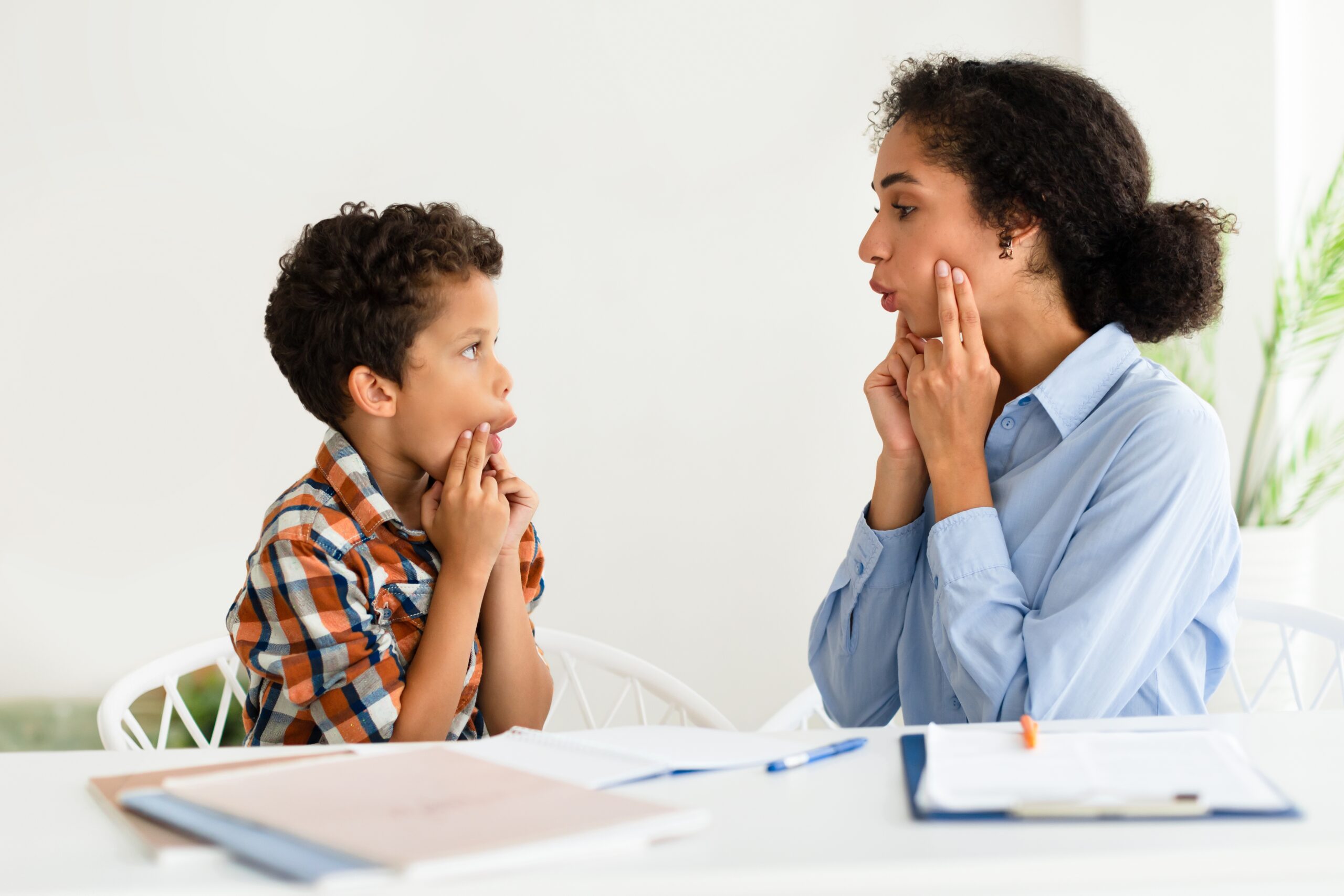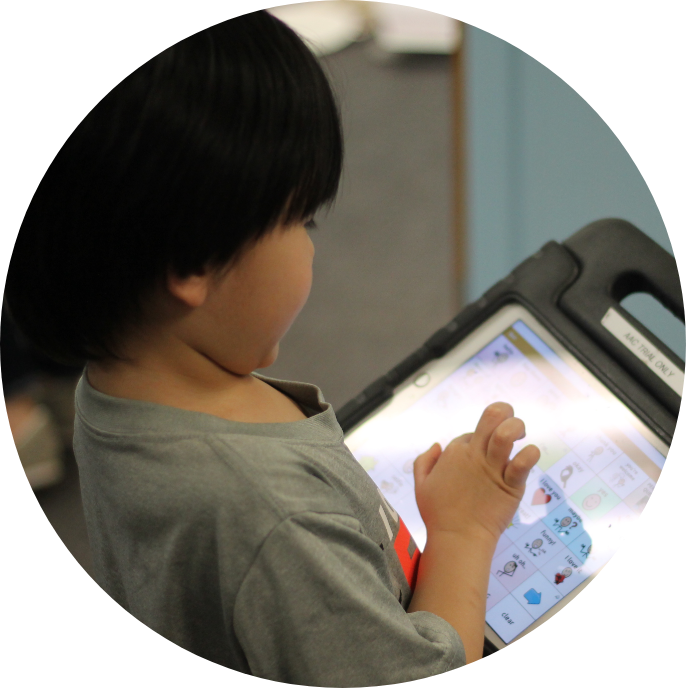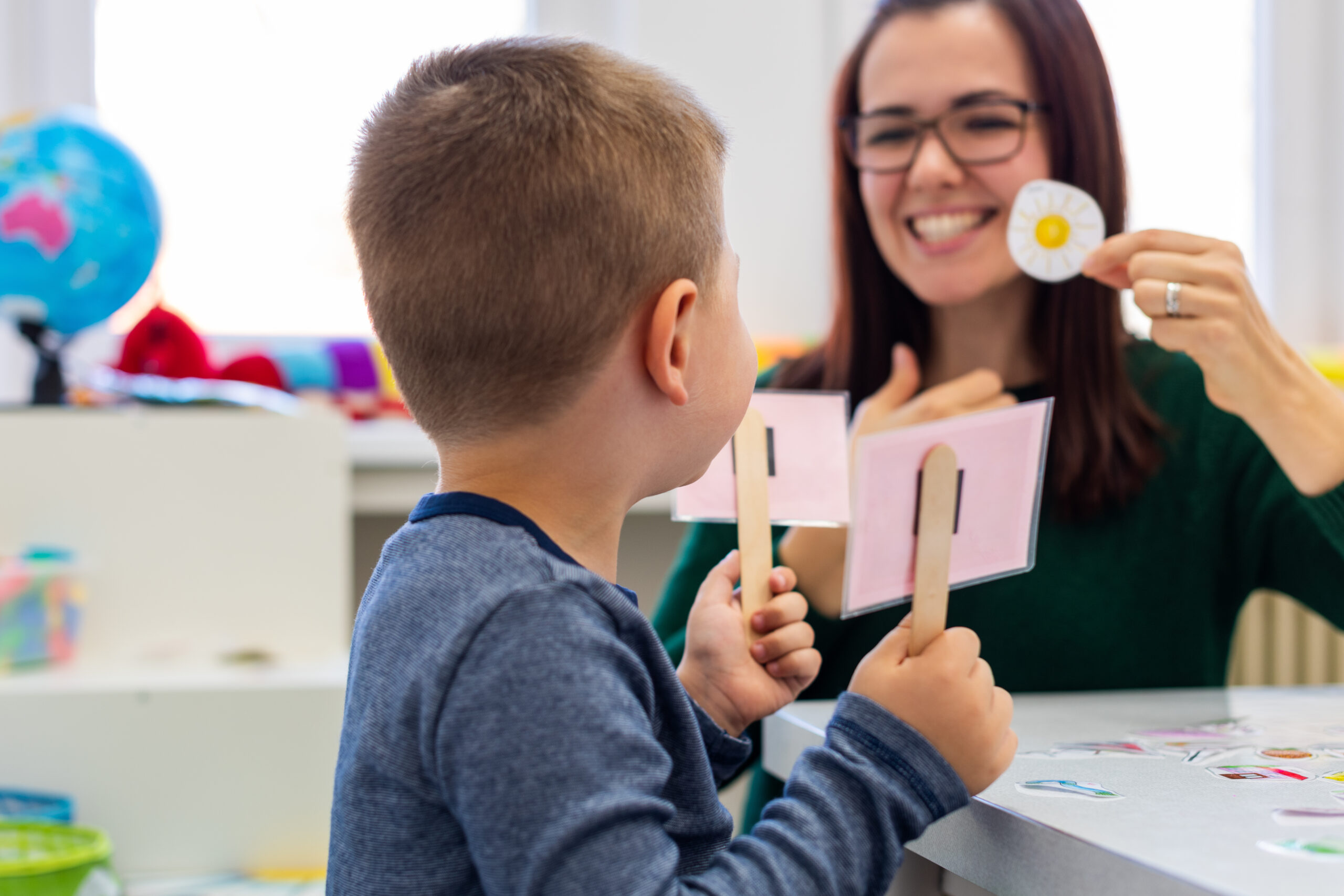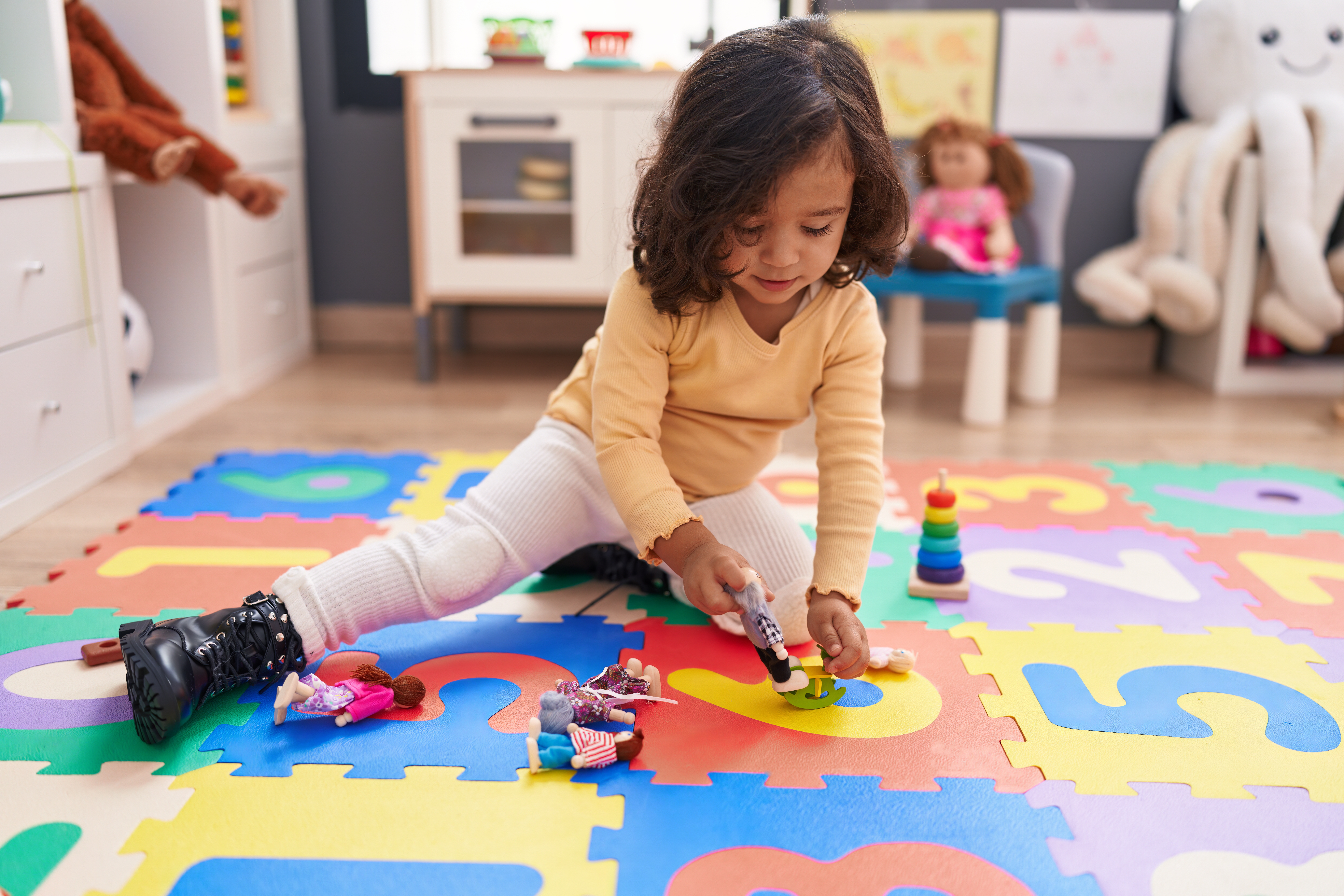Home | Therapy Services | Speech Therapy Services | Speech Therapy 101
Enhance Your Child’s World with Words

Every child with autism spectrum disorder (ASD) has a unique way of communicating with the world. At Bierman Autism Centers (BAC), we believe in nurturing each child’s communication skills by offering personalized speech therapy tailored to their needs. Speech therapy for autism is a key part of helping children learn self-expression, social interaction, and everyday communication.
In our Speech Therapy 101 guide, you’ll learn:
Speech therapy is a specialized service that helps children improve their communication skills. For children with autism, speech therapy focuses on helping them express themselves more effectively through speech, gestures, or other forms of communication.
At BAC, speech therapy for autism is a central service that empowers children to engage more fully with their surroundings, building confidence and independence.
An SLP is a trained professional who works closely with your child to identify their communication strengths and areas where they need support.
The SLPs at BAC use a personalized, child-centered approach to help each child enhance their speech, language, and social communication skills. The goal is to provide children with the tools they need to thrive in everyday situations.


Speech therapy for ASD addresses various areas of communication. By focusing on each child’s unique needs, we help them build essential skills to communicate more effectively and confidently.
Children with ASD may experience interfering behaviors in producing sounds clearly or controlling their voices. Speech therapy focuses on helping children articulate sounds correctly and use their voice effectively to improve overall communication.
Building expressive and receptive language skills is key to helping children interact with the world around them. Our therapists work to improve how children express their thoughts and how they understand others.
In social situations, children with autism may need extra support in understanding communication cues. Cognitive communication skills are an important part of speech therapy, helping children engage in conversations and understand non-verbal signals.
Some children with autism experience language disorders that make it harder for them to communicate. Our therapists help these children overcome these barriers by improving their vocabulary, sentence structure, and language use through evidence-based techniques.
The speech therapy process at Bierman Autism Centers is personalized to each child’s needs. From the initial assessment to day-to-day therapy, we aim to create a flexible and supportive environment that encourages communication growth.
We start with a comprehensive assessment. Our SLPs evaluate your child’s current communication abilities and identify areas where support is needed. This assessment helps create a roadmap for your child’s therapy journey.
Once the assessment is complete, our team develops a custom treatment plan to fit your child’s needs. This plan is tailored to your child’s communication goals, ensuring they receive the right support at every stage.
Speech therapy at BAC is engaging and fun. It uses play-based techniques to keep children motivated. Each session includes activities designed to help children build communication skills naturally while enjoying the process.
As your child progresses, our SLPs continuously monitor their development. We regularly assess whether the treatment plan still aligns with their needs and adjust as necessary, always working closely with parents.
Speech therapy doesn’t stop at the therapy center—parents play a vital role in supporting their child’s communication development at home. Creating a positive environment and working closely with your child’s therapist can help reinforce the progress made in therapy.
Your involvement is critical to your child’s success in speech therapy. You can create a supportive environment at home by practicing communication skills through everyday activities, such as:
Collaboration between parents and therapists ensures that the skills learned in therapy carry over into daily life. By working closely with your child’s SLP, you can reinforce techniques at home and support your child’s ongoing progress.




At Bierman Autism Centers, our goal is to help children with autism build meaningful communication skills through individualized, play-based speech therapy. We are committed to supporting your child’s development every step of the way.
Ready to learn more? Contact us today to learn how speech therapy at BAC can support your child’s communication growth.